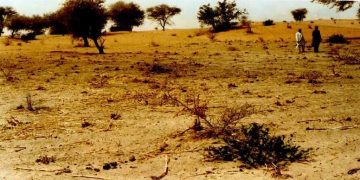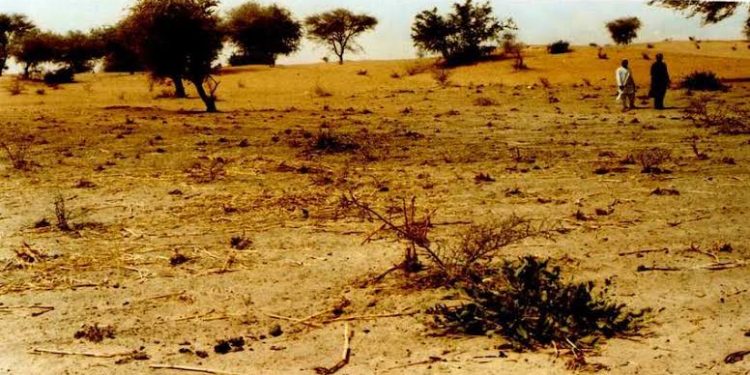By John Ikani
As part of efforts geared towards combating desertification and climate change, the United Nations Office for the Coordination of Humanitarian Affairs (UN OCHA) and the Yobe State Government have distributed three million tree seedlings to 12 local council areas of the state.
The 12 councils include Damaturu, Fune, Geidam, Karasuwa, Yusufari, Yunusari, Bursari, Tarmuwa, Jakusko, Nguru, Bade and Machina, a border council with Niger Republic.
Announcing the measures at an event to mark Humanitarian Day at Jakusko, the State Governor, Mai Mala Buni, represented by the deputy governor, Idi Barde Gubana, said “Under the State’s plan of action, named: “Buni Cap 4 Yobe,” three million seedlings of assorted species of trees were raised for distribution across the state.”
According to him, the Ministry of Environment would allocate the seedlings to affected communities, schools, associations, emirates, as well as the 12 council areas.
While enjoining the tree planning committee to ensure the protection of the fragile environment in each of the 17 the Councils, the governor also tasked them on liaising with traditional rulers to monitor and enforce Yobe State Forestry Law.
“To safeguard our fragile environment, is a task that requires the full cooperation and participation to fight desertification,” he said.
Also speaking at the event, the United Nation Resident and Humanitarian Coordinator for Nigeria, Mr. Edward Kallon, expressed worries about the rate of desert encroachment stressing that it is alarming and destroys the flora and fauna of Sahara desert, including palm plantations.
Kallon, who was represented by David Lubari Lominyo, noted that the climate crisis is a humanitarian protection concern to the most vulnerable people. He said that the humanitarian system has an important role in the fight against the climate emergency.
“We cannot afford to accept the investable climate disaster, especially here in the state,” he said, warning that peoples’ lives should be protected against any form of environmental degradation and hazards.




































